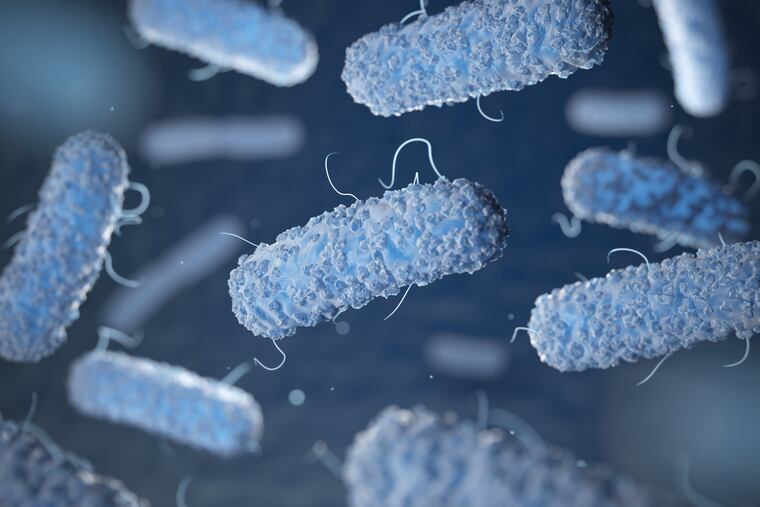Philadelphia officials issue health alert over E. coli outbreak
Fourteen people, from age 7 to 90, have been sickened since August 30.

The Philadelphia Department of Public Health on Thursday announced an outbreak of E. coli infections that has sickened 14 people so far.
In a statement, city health officials said their investigation “has identified a few shared restaurant exposures.” It did not name the restaurants.
All 14 affected people, ranging in age from 7 to 90, “presented with signs of acute gastroenteritis with bloody and non-bloody diarrhea,” according to the statement.
The cases have been reported since Aug. 30.
The health department said the illnesses were due to Shiga-toxin E. coli, one of five E. coli strains. Symptoms usually start with non-bloody diarrhea, which can progress to bloody diarrhea after two to three days. Severe abdominal pain and fever may also occur.
Exposure to the bacteria often occurs through contact with food or water contaminated by human or animal stool, or through contact with an infected person. Outbreaks have been associated with consuming undercooked beef, unpasteurized milk, or raw leafy vegetables, as well as exposure at petting zoos.
Nicole Sikora, 31, a performing arts administrator who lives in Northern Liberties, said a severe stomach ache and bloody diarrhea caused her to go to the emergency room of Thomas Jefferson University Hospital about a week ago, where she was told she was infected by E. coli. She said her fiancé, who had similar symptoms, was admitted to Jefferson last weekend and is still at the hospital, being monitored for dehydration.
They sought care when their symptoms didn’t seem to be easing at home.
“I didn’t know if I was going to get better," Sikora said. “It was really pretty painful.”
The weekend before their symptoms began, Sikora said, she and her fiance ate at a Center City restaurant where they believe they contracted the illness.
» READ MORE: After failing to solve deadly E. coli mystery, FDA is urged to improve tracking of risky foods
Doctors and health providers are being asked to test for Shiga-toxin and E. coli in all patients presenting with acute gastroenteritis and to notify the health department of confirmed cases.
A significant possible complication of this strain is hemolytic-uremic syndrome (HUS) — a condition that affects the blood vessels in the kidneys — which can cause hemolytic anemia, low platelets, and acute renal dysfunction. HUS usually develops seven to 14 days after diarrhea begins and can result in kidney failure, seizures, coma, or death. About 6% of people infected by the E. coli strain will develop HUS, according to the health department. Children ages 1 to 4 are at highest risk.
People with suspected infection from this E. coli strain should not take antibiotics, as they may increase the risk of HUS.